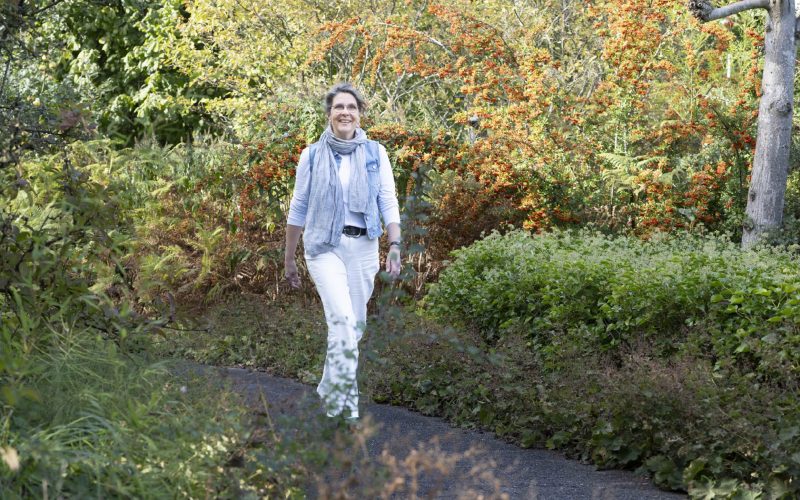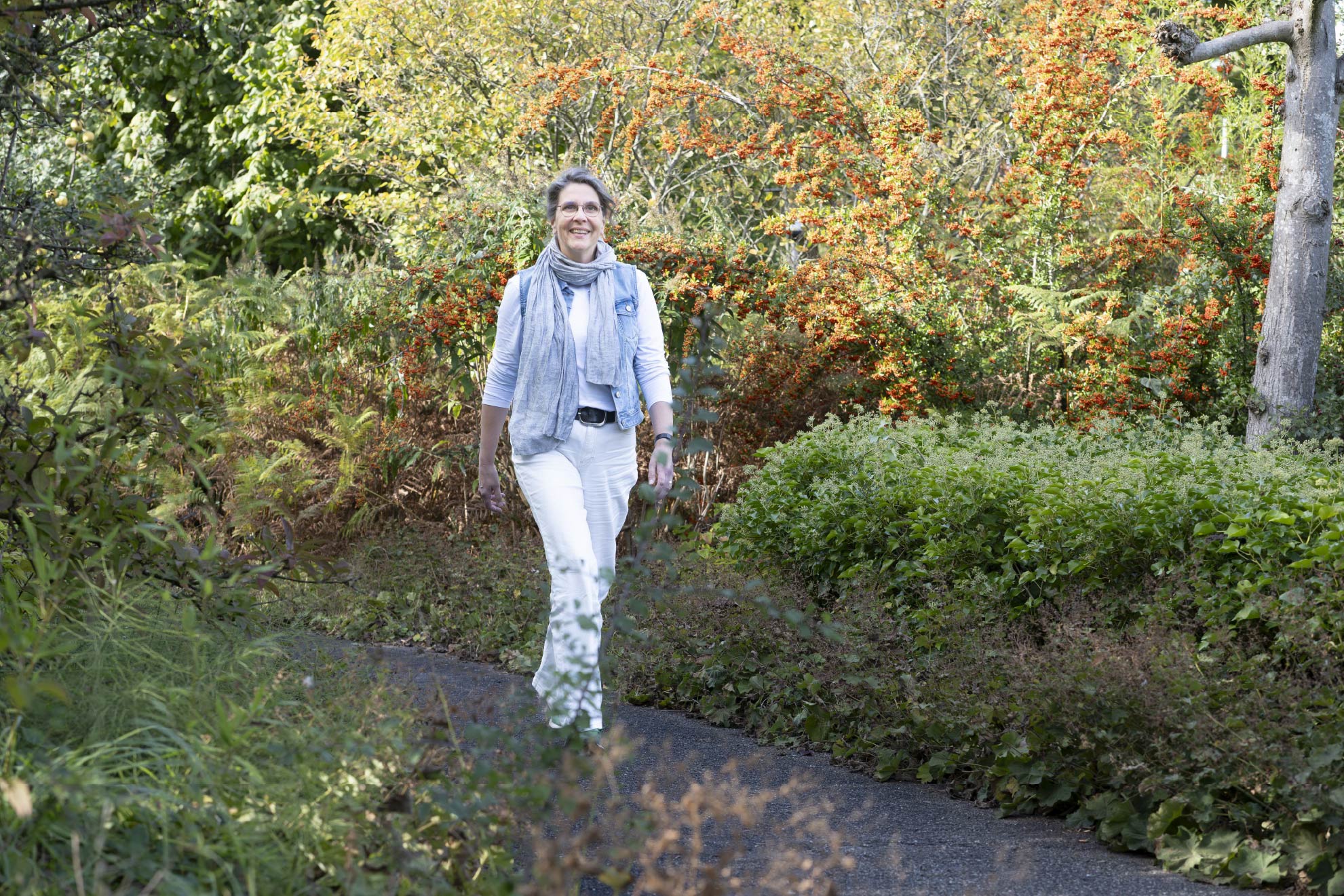After being diagnosed with metastatic breast cancer and undergoing major surgery, Ineke (58) found new strength through exercising. She participated in a study at UMC Utrecht and followed an exercise program under supervision of a physiotherapist that helped her rebuild trust in her body. “If you want to make something of your life with cancer, exercise is gold.”
For almost a year, Ineke thought she was dealing with a burnout. Her daily neck pain seemed to point in that direction, at least, that’s what her doctor believed. “Maybe I wanted to believe it myself,” she says. But the pain worsened. Finally after having done an MRI scan, the real cause became clear: breast cancer that had spread to her spine. “I was just one fracture away from a high-level spinal cord injury.”
At UMC Utrecht, Ineke underwent a complex surgery in which doctors removed the affected vertebrae and stabilized her spine with metal rods. “It felt like I had a new spine, only one that was less flexible.” She then started radiation and anti-hormonal therapy, which thankfully worked. But the period that followed was tough. “I could walk for just five minutes, had a lot of nerve pain, and needed a walker just to go outside. No one mentioned an exercise program, but I wanted to keep going. I had to take the initiative myself.”
“In the beginning, I hardly dared to do anything. I had lost all confidence in my body. Even standing on a wobble ball terrified me.”
Through her oncologist, Ineke learned about the PREFERABLE-EFFECT study, an exercise program designed for people with metastatic breast cancer. She decided to participate. “In the beginning, I hardly dared to do anything. I had lost all confidence in my body. Even standing on a wobble ball terrified me.”
But progress came, little by little. She relearned how to balance, climb stairs, and even get on and off the bus. “It may sound small, but it opens up your world. Suddenly I could go to the city or the library again.” She also got a special recumbent bicycle. After nine months of training, Ineke was walking indoors without a cane. And she kept going—until she dared to leave the cane at home for good. “I’ve now been training twice a week for more than two and a half years. I no longer feel like a rehab patient.”
Still, Ineke remains a patient in the oncological sense. “Metastatic breast cancer can’t be cured. I know there will come a time when the tumor will find a way around the medication. But I don’t look further ahead than two years. I could spend time worrying about what might go wrong, but that won’t make today any better.” The exercise program helped her grow stronger, physically, but also mentally. “I don’t need a mindfulness course anymore.”
Ineke hopes that others with cancer will also get—or take—the opportunity to exercise the way she did. “Take every chance you get. And if no one offers it, organize it yourself. For me, this program meant the difference between staying in bed and having a life again. Exercise is gold, if you want to make something of your life with cancer. It helps with fear, isolation, and it provides structure. I wish that for everyone.”
The PREFERABLE-EFFECT study examined how exercise impacts people with metastatic breast cancer. Under the guidance of physical therapists, participants followed a personalized exercise program twice a week for nine months. The program focused on improving fitness, muscle strength and balance. The goal: to improve quality of life, reduce fatigue, and help participants regain confidence in their bodies.
The results showed that exercise is both safe and feasible, even with a serious illness like metastatic breast cancer and that it helps people remain active longer in their daily lives. Participants in the program reported less fatigue, reduced pain, and improved quality of life. The program also resulted in lower healthcare costs – both in the hospital and at home – and fewer short-term work absences. . These results underscore the necessity for making exercise programs accessible to all patients.
The study was funded by the European Commission and the Australian government. UMC Utrecht coordinated the project, which also took place at the Netherlands Cancer Institute (Antoni van Leeuwenhoek) and European Health and Digital Executive Agency (HaDEA), DKFZ German Cancer Research Center, University Hospital Heidelberg, Performance Psychology – German Sport University Cologne, Leibniz Universität Hannover, Centre for Ethics and Law in the Life Sciences, Karolinska Institutet, AICSO – Associação de Investigação de Cuidados de Suporte em Oncologia, Julius Clinical, Cabrini HEALTH, Australian Catholic University, Biogipuzkoa, Osakidetza and National Center for Tumor Diseases (NCT) Heidelberg.
A follow-up study, PREFERABLE-II, also known as the LION study, has now started. This study investigates the effects of an online, live-supervised exercise program for people who have completed cancer treatment but still face health issues as a result.
Do you experience fatigue, nerve pain, anxiety or depression, or reduced physical functioning after cancer treatment? Reach out to the research team. Research teams in The Netherlands, Germany, Sweden, Spain, Portugal and Australia are running the study. Because it is an online program, people from all over the country can participate.

